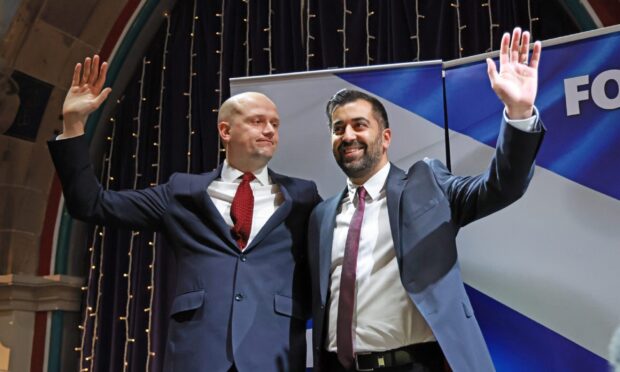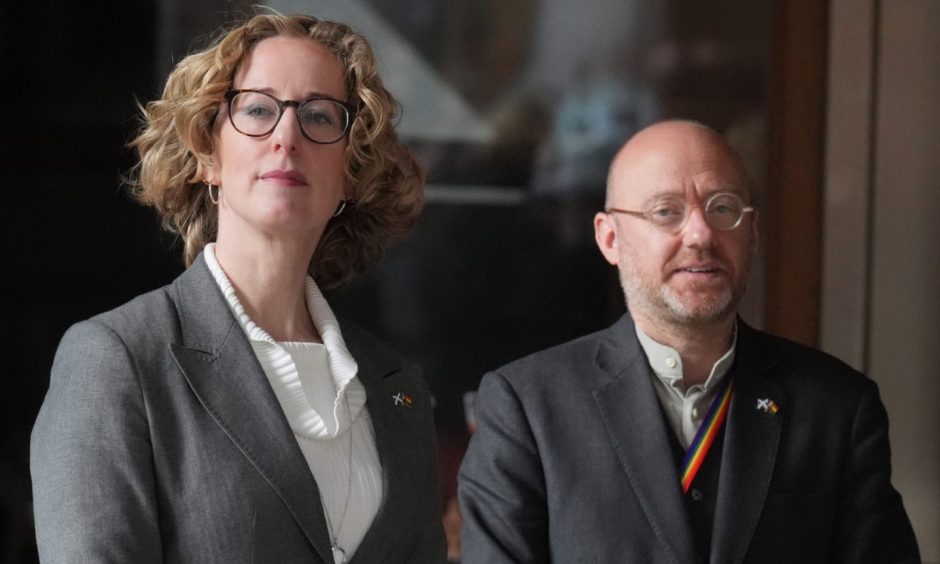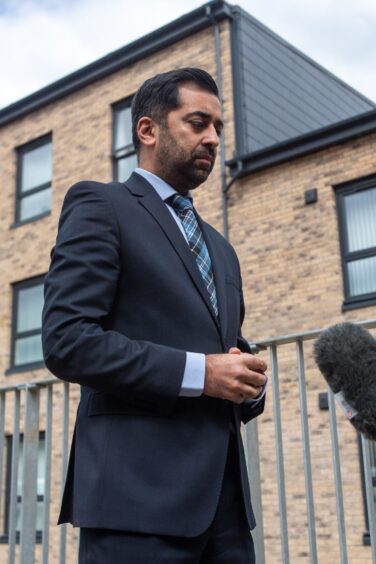The hunt for a figure to blame for the downfall of Humza Yousaf is under way inside the SNP one day after he announced he’s quitting as first minister.
It stems from Mr Yousaf’s shock decision to rip up his party’s power-sharing deal with the Scottish Greens last Thursday – a move which backfired spectacularly, forcing him to resign four days later.
But as the competition for a new leader got under way, some were keen to point the finger at Dundee-born Stephen Flynn, seen by many as the catalyst for the first minister’s decision.
One senior source told The Courier: “Stephen Flynn pushed the First Minister to pull out of the Bute House Agreement with no idea of the impact it would have. It didn’t need a master strategist to know how weak this would leave us.
“Humza Yousaf will bitterly regret allowing Stephen Flynn to have the influence he had and members won’t forget his role in this mess.”
Mr Flynn insists that while he supported the first minister’s decision to end the agreement with the Scottish Greens, his supposed influence is being overestimated.
He told The Courier: “This is not true and comes from sources who overstate my influence as much as they overestimate their own abilities.
“Whilst I was supporting the decision of the party leader these anonymous sources were drifting down the Tay – that’s what party members and the public will remember.”
Who backed ending the Bute House deal?
Mr Flynn met Mr Yousaf on Wednesday last week and the Bute House Agreement between the SNP and Greens was discussed.
Several people with knowledge of Mr Yousaf’s decision have said it was later in the evening the first minister decided to kick the greens out of government.
It’s also said this was not a sudden revelation. One source said there had been “serious strains” even before the climate targets were ditched.
Kevin Pringle, the first minister’s powerful communications and strategy chief is understood to have been another voice arguing in favour of ending the deal.
His view was no secret before he rejoined government as an adviser. In a opinion column for The Courier prior to his appointment as a special adviser, Mr Pringle argued Mr Yousaf “didn’t need the Greens in government“.
Crucially, the handling of the situation is said to been coordinated by Mr Yousaf and his inner circle of advisors.
One source admitted: “They forgot to take into account how this would feel for the Greens after three years of working together.”
On Wednesday evening, after it was clear the move had backfired and Mr Yousaf would face a confidence vote, insiders say it was Stephen Flynn and Dundee councillor Nadia El-Nakla, the first minister’s wife, who convinced him to reset his leadership by spelling out his priorities the following day.
A hastily arranged media opportunity at a Dundee housing development was arranged, where the first minister announced an £80 million investment in affordable housing.
Over the weekend that followed, and despite the first minister insisting he would not resign, soundings were taken among the party’s senior echelons about a potential replacement.
Glenrothes and Mid Fife MSP Jenny Gilruth, the education secretary, was one person floated as potential successor, though the path to her nomination remained far from clear.
It fell flat one day later when she immediately swung support behind Perthshire MSP John Swinney to lead the party – a decision he was still “considering” on Tuesday morning.
Publicly and privately, Highlands MSP Kate Forbes, often touted as a challenger to Mr Yousaf’s position, was supportive of the first minister.
A source said: “There was no one [from the cabinet] out there seriously defending him. Kate’s column in The National was actually one of the most supportive things anyone said all weekend.”




Conversation